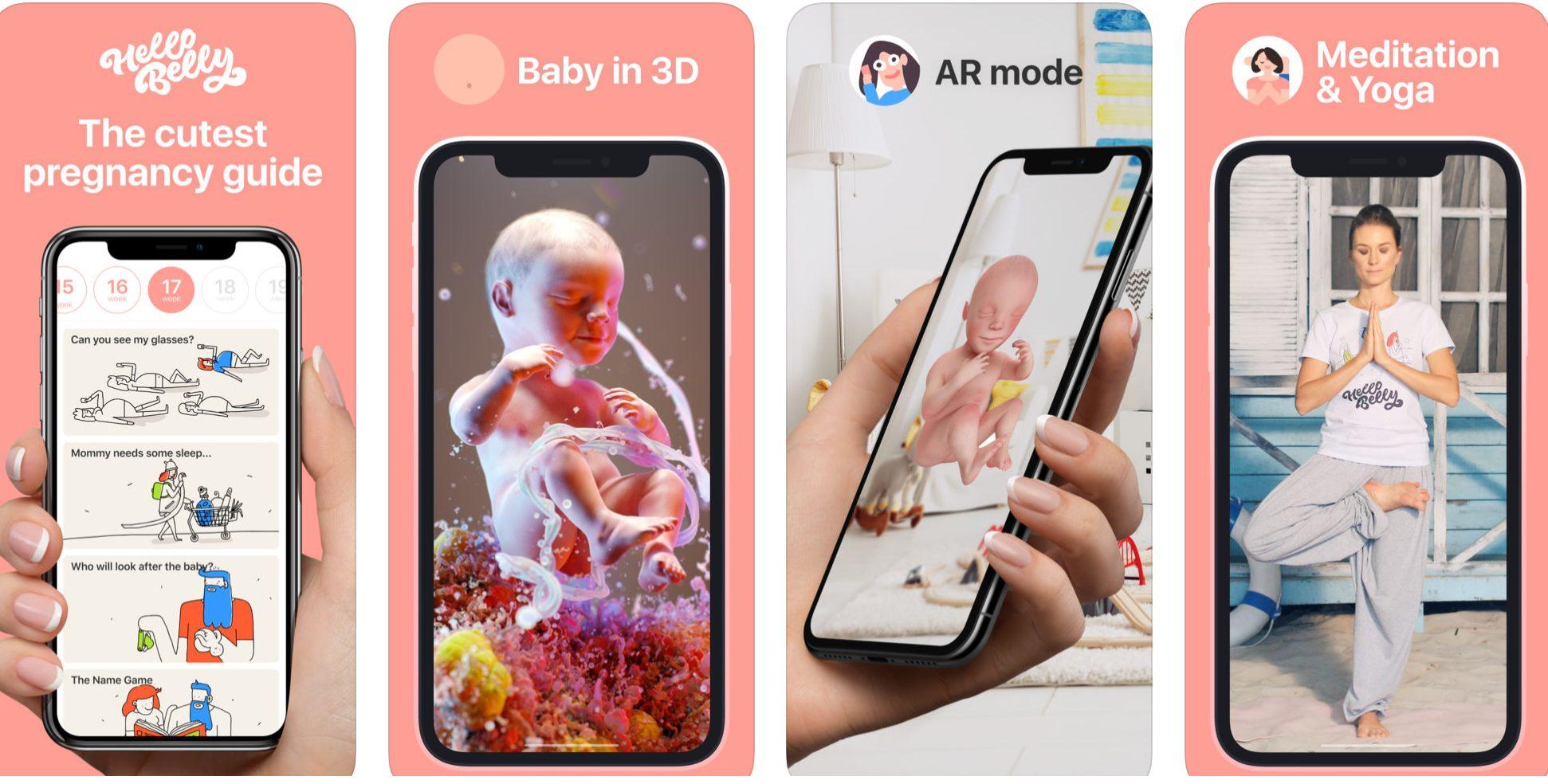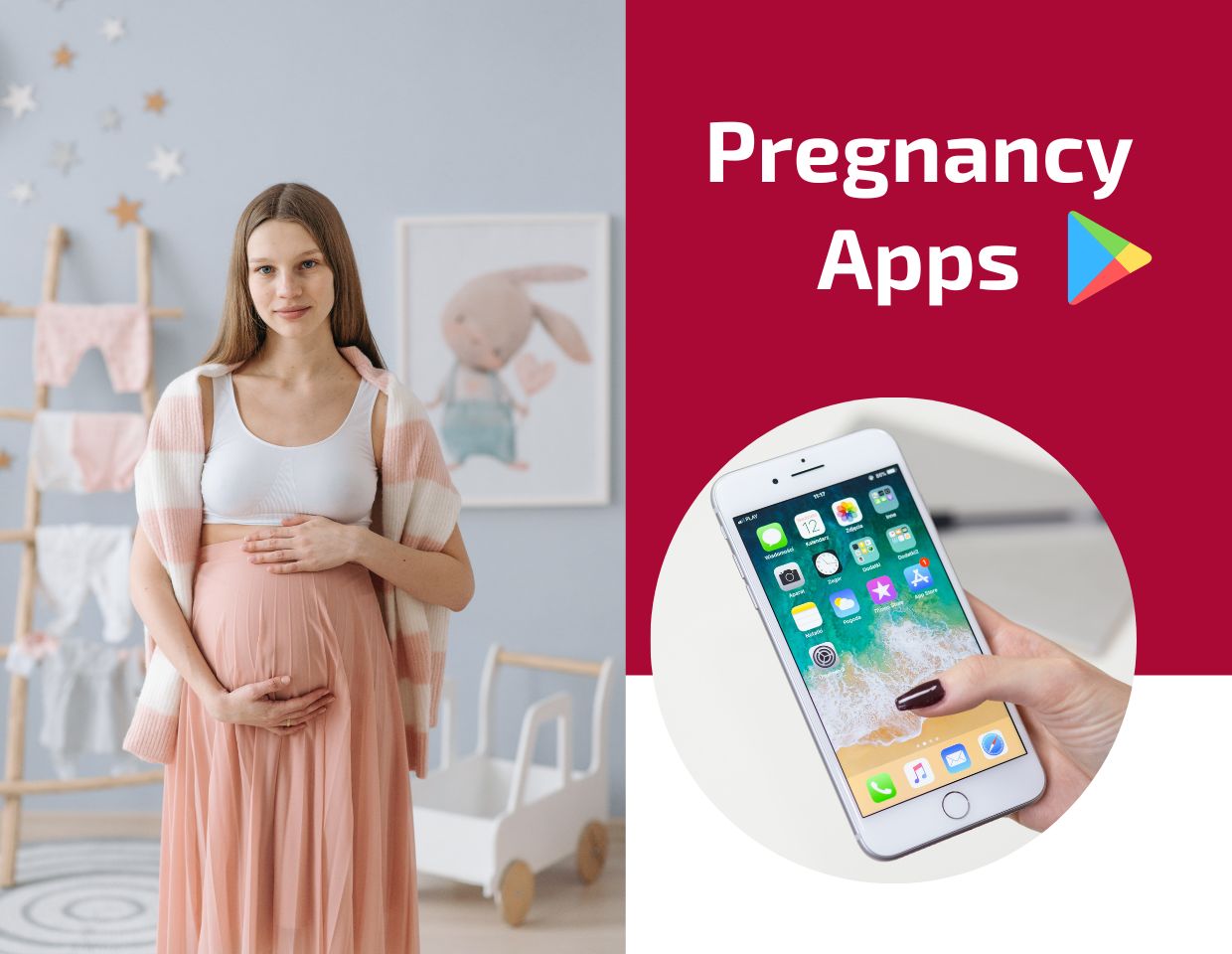Pregnancy apps have become an indispensable tool for expecting parents, offering a wealth of information, support, and guidance throughout the transformative journey of pregnancy. With an array of features and functionalities, these apps empower users to track their progress, access reliable health information, connect with healthcare providers, and engage with a supportive community.
As the popularity of pregnancy apps continues to soar, developers are constantly innovating, introducing cutting-edge technologies and expanding the scope of services offered. From personalized nutrition plans to virtual prenatal yoga classes, pregnancy apps are evolving to meet the diverse needs of expectant mothers and fathers.
Pregnancy Apps Overview

Pregnancy apps are mobile applications designed to provide expectant mothers with information, support, and tools throughout their pregnancy journey. These apps offer a wide range of features, including:
- Tracking pregnancy progress and fetal development
- Monitoring symptoms and managing appointments
- Connecting with other pregnant women and healthcare professionals
- Providing educational resources and support
Pregnancy apps have become increasingly popular in recent years, with millions of downloads worldwide. A 2021 study by Research and Markets found that the global pregnancy app market is expected to reach $1.2 billion by 2025, growing at a compound annual growth rate (CAGR) of 12.3%.
Features and Functionality
Pregnancy apps offer a wide range of features and functionality designed to support women throughout their pregnancy journey. These features typically include:
Tracking Pregnancy Progress and Symptoms
- Tracking fetal development and estimated due date
- Monitoring weight gain, blood pressure, and other vital signs
- Logging symptoms, such as morning sickness, fatigue, and mood swings
Providing Educational Information
- Access to articles, videos, and other resources on pregnancy, childbirth, and newborn care
- Personalized recommendations based on the user’s pregnancy stage
- Expert advice from doctors, midwives, and other healthcare professionals
Connecting with Healthcare Providers
- Scheduling appointments and managing medical records
- Sending messages to healthcare providers with questions or concerns
- Receiving notifications about upcoming appointments and test results
Facilitating Community Support
- Connecting with other pregnant women and mothers
- Sharing experiences, asking questions, and offering support
- Participating in online forums and discussion groups
The table below compares and contrasts the features of different pregnancy apps:
User Experience and Design
User experience (UX) plays a crucial role in pregnancy apps, as it directly impacts the well-being and engagement of expecting mothers. A well-designed app should provide an intuitive and user-friendly interface that empowers users to navigate seamlessly and access essential information effortlessly.Design principles such as clarity, consistency, and accessibility should guide the development of pregnancy apps.
Clear and concise language, logical information hierarchy, and consistent visual elements enhance usability and reduce cognitive load. Accessibility features, such as adjustable font sizes, color contrast, and screen reader compatibility, ensure inclusivity for users with diverse needs.Examples of well-designed pregnancy apps include:
Ovia Pregnancy
Features a personalized experience tailored to each user’s pregnancy journey, with daily updates, expert guidance, and a supportive community.
Pregnancy+
Offers a comprehensive suite of tools, including a pregnancy tracker, contraction timer, and access to certified nurses for support and advice.
Glow Nurture
Provides a holistic approach to pregnancy care, with personalized recommendations, a mood tracker, and mindfulness exercises.
Health and Safety Considerations: Pregnancy Apps

Pregnancy apps have emerged as valuable tools in promoting health and safety during pregnancy. They provide access to accurate and up-to-date information on prenatal care, nutrition, and exercise, empowering expectant mothers to make informed decisions about their health and the well-being of their unborn child.
Pregnancy apps can offer comprehensive guidance on prenatal care, including information on prenatal appointments, screenings, and tests. They can also provide personalized recommendations on nutrition, with tailored meal plans and recipes that meet the specific dietary needs of pregnant women.
Additionally, many apps include exercise programs designed for different stages of pregnancy, helping expectant mothers stay active and maintain a healthy weight.
Potential Risks and Limitations
While pregnancy apps offer numerous benefits, it’s important to acknowledge their potential risks and limitations. One concern is the accuracy and reliability of the information provided. While many apps are developed in collaboration with healthcare professionals, some may contain outdated or inaccurate information.
It’s crucial for expectant mothers to consult with their healthcare provider to verify any information obtained from pregnancy apps.
Another limitation is the potential for excessive reliance on apps. While apps can be helpful resources, they should not replace regular prenatal care and communication with a healthcare provider. It’s important for expectant mothers to seek professional medical advice for any concerns or questions they may have.
Market Trends and Innovations

The pregnancy app market is constantly evolving, with new trends and innovations emerging all the time. These advancements are driven by the increasing popularity of smartphones and tablets, as well as the growing demand for personalized and convenient healthcare information.
One of the most significant trends in the pregnancy app market is the use of artificial intelligence (AI). AI-powered apps can provide personalized recommendations and advice to pregnant women, based on their individual needs and preferences. For example, some AI-powered apps can track a woman’s pregnancy progress, provide nutritional advice, and even offer support for mental health issues.
Another major trend in the pregnancy app market is the use of wearable devices. Wearable devices, such as fitness trackers and smartwatches, can track a woman’s activity levels, heart rate, and sleep patterns. This information can be used to provide valuable insights into a woman’s overall health and well-being during pregnancy.
Future Direction of Pregnancy Apps
The future of pregnancy apps is bright. As technology continues to advance, we can expect to see even more innovative and personalized apps that can help women throughout their pregnancy journey. These apps will continue to play an important role in providing women with the information and support they need to have a healthy and happy pregnancy.
Final Wrap-Up

Pregnancy apps have revolutionized the way expecting parents navigate the complexities of pregnancy. By providing accurate and up-to-date information, connecting users with healthcare professionals, and fostering a sense of community, these apps empower individuals to make informed decisions, reduce anxiety, and embrace the joys of parenthood.
As technology continues to advance, we can expect pregnancy apps to become even more sophisticated and integrated into the healthcare ecosystem. With the potential to monitor fetal health, provide real-time support during labor, and facilitate postpartum care, pregnancy apps are poised to play an increasingly vital role in ensuring the health and well-being of both mothers and babies.
FAQ Explained
Are pregnancy apps safe to use?
Yes, reputable pregnancy apps are generally safe to use. They are typically developed by healthcare professionals or in collaboration with medical experts and provide accurate and evidence-based information. However, it is always advisable to consult with your healthcare provider before making any major decisions based on information obtained from an app.
How do I choose the best pregnancy app for me?
Consider your individual needs and preferences when selecting a pregnancy app. Look for apps that offer the features and functionalities that are most important to you, such as symptom tracking, educational content, community forums, and healthcare provider integration. Read reviews from other users and consult with your healthcare provider for recommendations.
Can pregnancy apps replace prenatal care?
No, pregnancy apps are not a substitute for regular prenatal care. While they can provide valuable information and support, it is crucial to attend scheduled appointments with your healthcare provider to ensure the health and well-being of both you and your baby.